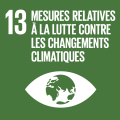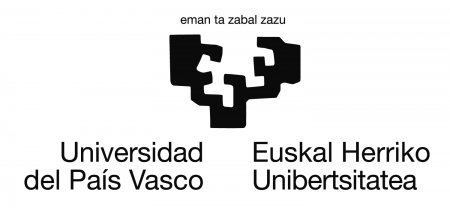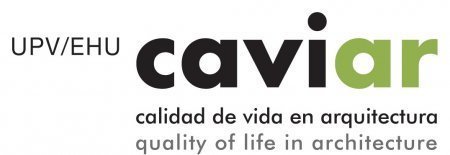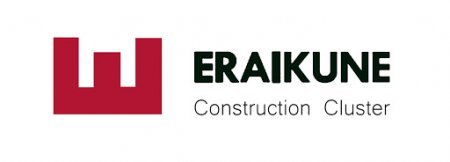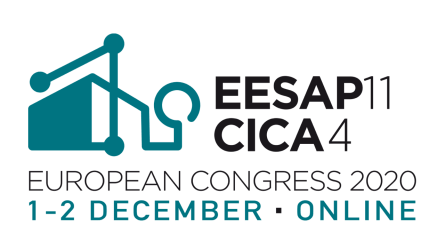
LIVE ONLINE - 11th European Congress on Energy Efficiency and Sustainability in Architecture and Urbanism and 4th International Congress on Advanced Construction
Description
The eleventh edition of the European Congress on Energy Efficiency and Sustainability in Architecture and Urbanism (EESAP 11) and the fourth International Congress on Advanced Construction (CICA 4), address the issue of Disruption. In the previous ten editions of the congress, we have addressed emerging issues in the field of construction. Its evolution will follow the accelerated path of the rest of the activities and it will surely bring us great surprises, as has been the determining transforming irruption of the internet and the consequent generalized digitalization. In a few years, everything has been transformed, but what will happen in the next ten?
The strategies have been defined for some time in the planning of the largest actors and new innovative firms continually influence our field. We invite all our regulars and those who want to join us in the tenth edition of our congress to present their proposals, in the light of a different 2030. As in the previous editions and given in its academic facet, the congress is especially aimed at students, professionals and researchers.
Since the EESAP8/CICA1 edition, the conference has extended the scope of scientific and technical diffusion to the entire innovative construction sector. Furthermore, it is opened to the business sector, due to their close relationship to meet current social demands on business innovation for achieving higher quality of life.
List of themes:
- Environmental awareness.
- Urban regeneration from sustainable architecture and energy efficiency perspectives.
- Sustainable cities and social urbanism; sustainable urban economy.
- Economy: built experiences - housing, urbanism, technology - ICT, monitoring...
- Reduce, Reuse, Recyble, Rethink.
- Lean architecture and urban planning.
- Cities at risk. Resilience and Redundancy.
- Built heritage and sustainability. Culture and urban sustainability. Cultural landscapes
- Smart Communities.
- Transition.
- 4.0 Construction
- Wood and bio-based materials as a sustainable and renewable resource.
Objectives
Discuss on the transitional strategies to new territorial, urban and building models for the next ten years with regard to energy, mobility, manufacturing and management of the construction industry.
Reach a strategic confluence among training-research-production.
Create links among diverse agents in the construction sector to increase competitiveness by applying new technologies in activities where diffuse but extensive experience is required. Create collaborative business environments.
Discuss on disruption of construction industry and digitalization of processes in the near future.
Activity directed to
- University student
- Teachers
- Professionals
- Investigadores/as
Directors
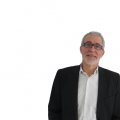
Rufino Javier Hernández Minguillón
UPV/EHU, Arquitectura
PhD Architect UNAV (1991), Master in Building UNAV (1993), lecturer at the ETSA-UNAV (1984 and 2003), lecturer at the UPV/EHU (since 1997), Professor (2020). ANECA and ANEP assessor in the area of Civil Engineering and Architecture. Founder of the architectural firm AH Asociados. Member of the board of directors of the Basque Construction Cluster ERAIKUNE (2013-) and vice-president (2013-2016). Director of the Master Degree in Sustainable Construction and Energy Efficiency (UPV/EHU). Member of the Academic Committee of the University Master Degree in Energy Efficiency and Sustainability in Industry, Transport, Building and Urban Planning (UPV/EHU). Director of the Master Degree in Advanced Construction (UPV/EHU). Head of CAVIAR Research Group, IT1135-16 (UPV/EHU). Researcher in: eco-efficient industrialised construction, inclusive eco-efficient urban planning, smart architecture and urban planning.

Ana Ortega Parisx
ERAIKUNE, CLUSTER DE LA CONSTRUCCIÓN DE EUSKADI
Speakers

Alheli Álvarez Huamán
Universidad Andina del Cusco

Luis Bozzo Lucho

GERMAN CASTELLANOS Rodríguez
Universidad de los Andes

Ignacio De la Puerta Rueda
Eusko Jaurlaritza / Gobierno Vasco
Master en Arquitectura por la Escuela de Arquitectura de Madrid en la especialidad de Edificación (1983), es diplomado en Derecho Urbanístico, especialista en Edificación, Rehabilitación y Urbanismo sostenible y Mediador Civil y Mercantil, con amplia experiencia en la planificación estratégica, planificación urbana y procesos de calidad. Desde el año 1983 ha desempeñado la Dirección del Estudio IP Arquitectos, en el que se han desarrollado tanto Proyectos y Dirección de obras de Edificación y Rehabilitación, como de Planeamiento, actividad que ha mantenido hasta su reciente nombramiento (enero 2017) como Director de Planificación Territorial, Urbanismo y Regeneración Urbana del Gobierno Vasco. En los últimos años ha formado parte del Grupo de Trabajo de Rehabilitación GTR, en el que ha coordinado el grupo de trabajo con las comunidades autónomas, siendo coautor con Albert Cuchí.

Pablo Eguía Oller

Francesco Fiorito

Niki Gaitani
Associate Professor NTNU

Pilar García Almirall
UPC

Edwin Roberto Gudiel Rodriguez
Universidad Andina del Cusco

Ester Higueras García
Universidad Politecnica Madrid, Urbanistica y Ordenacion del Territorio
Ester Higueras es doctora arquitecta, profesora Titular de la Universidad Politécnica de Madrid. Especialista en planificación ambiental, ordenanzas ambientales y urbanismo bioclimático. Ha sido directora del Curso de Formación Continua de la UPM, "ENFOQUE SOSTENIBLE Y ESTRATÉGICO DE LOS GRANDES PROCESOS URBANOS: PUERTO CIUDAD DE CÁDIZ", para estudiar y evaluar alternativas de proyecto en la Bahía de Cádiz con criterios de sostenibilidad. Autora de Urbanismo Bioclimático, GG 2006; El reto de la ciudad habitable y sostenible, DAPP, 2009, y numerosas publicaciones docentes e investigadoras. Pertenece al Grupo de Investigación arquitectura Bioclimática en un Entorno Sostenible ABIO-UPM.

Carlos Orbea Orbea
ALOKABIDE

Emilia Román López
Universidad Politécnica de Madrid, Profesora Contratada Doctora
Doctora Arquitecta por la Universidad Politécnica de Madrid (UPM). Máster en Medio Ambiente y Arquitectura Bioclimática por la UPM. Experta Universitaria en Análisis Urbano y Territorial a través de Sistemas de Información Geográfica por la Universidad Politécnica de Valencia, y piloto de RPAS (drones) por Falcon Air Academy, SL. Actualmente es Profesora Ayudante Doctora del Departamento de Urbanística y Ordenación del Territorio (DUyOT) en la ETSAM y pertenece al Grupo de Investigación en Arquitectura, Urbanismo y Sostenibilidad (GIAU+S) de la UPM desde el año 2009. Línea profesional, académica e investigadora orientada hacia el paisaje, patrimonio, territorio, urbanismo y arquitectura bioclimática, rehabilitación energética y urbana integral. Ha participado en numerosos proyectos de investigación, nacionales e internacionales y también ha colaborado en cursos de postgrado, congresos y seminarios, impartidos en colegios profesionales y universidades nacionales e internacionales.

Manuel Maria Ruiz de Adana Santiago
Universidad de Córdoba

Álvaro Ruiz Pardo
Universidad de Cádiz

Irati Uriarte Perez de Nanclares
UPV/EHU

María Rosario Vallejo Ilarduya
Viviendas Municipales de Bilbao

Gustavo Salinas Castro

Francisco José Sánchez de la Flor
Universidad de Cádiz
Registration fees
| Registration | Until 31-10-2020 | Until 30-11-2020 | Until 02-12-2020 |
|---|---|---|---|
| 100,00 EUR | - | 150,00 EUR | |
| 100,00 EUR | - | 100,00 EUR | |
| 40,00 EUR | - | 40,00 EUR | |
| 0 EUR | - | 0 EUR | |
| 50,00 EUR | - | 50,00 EUR | |
| 0 EUR | - | 0 EUR | |
| 0 EUR | - | 0 EUR | |
| - | 0 EUR | 0 EUR |
Venue
Online streaming
Live online
Sustainable development goals
Agenda 2030 is the new international development agenda approved in September 2015 by the United Nations. This agenda aims to be an instrument to favour sustainable human development all over the planet, and its main pillars are the eradication of poverty, a reduction in equality and vulnerability and fostering sustainability. It is a unique opportunity to transform the world up to 2030 and guarantee human rights for all.

3 - Good health and well-being
Guarantee a healthy life and foster the well-being of all people of all ages. Key issues: universal healthcare coverage, sexual and reproductive health, reduction in the number of road accident casualties, pollution and chemical products, reduction in maternal and neonatal mortality, the end of epidemics such as AIDS, combating hepatitis and other water-borne diseases, drug and alcohol prevention, control of tobacco.
More information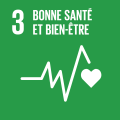
7 - Affordable and clean energy
Guaranteeing access to affordable, reliable, sustainable and modern energy for everyone. Key issues: universal access, increased proportion of clean energies, energy efficiency, research, fostering investments in energy infrastructures and clean technologies, modern and sustainable energy services.
More information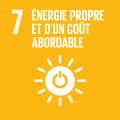
9 - Industry, innovation and infrastructure
Build resilient infrastructures, promote inclusive and sustainable industrialisation and foster innovation. Key issues: reliable, sustainable, resilient and quality infrastructures, inclusive and sustainable industrialisation, modernisation, clean and environmentally rational industrial technologies and processes, scientific research and improvement of technological capabilities, universal access to ICTs.
More information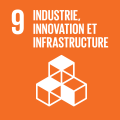
11 - Sustainable cities and communities
Make cities and other human settlements inclusive, safe, resilient and sustainable. Key issues: access to suitable housing and basic services that are secure and affordable, suitable and sustainable transport systems, inclusive urban planning, participative planning and management, protection of cultural and natural heritage, air-quality, green zones, and connections between urban, peri-urban and rural areas.
More information
12 - Responsible consumption and production
Guarantee sustainable modalities of consumption and production. Key issues: sustainable management and efficient use of natural resources, reduction of chemical particles released to the atmosphere, water and soils, reduction of waste products, recycling, reuse and reduction, sustainable practices, sustainable public procurement, sustainable lifestyles, rationalisation of inefficient subsidies for fossil fuels.
More information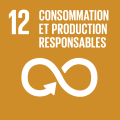
13 - Climate action
Adopt urgent measures to combat climate change and its effects. Key issues: mitigation, resilience and capacity for adaptation, planning, national strategies and plans, education and raising awareness, reduction of effects and early warning systems, compliance with the Framework Convention of the United Nations on Climate Change.
More information